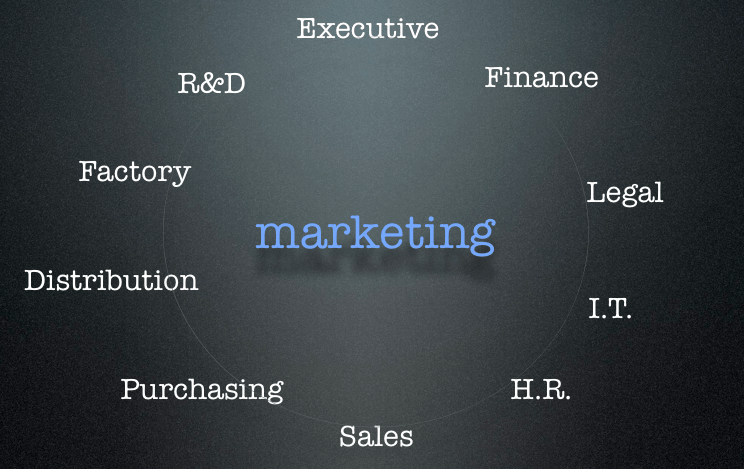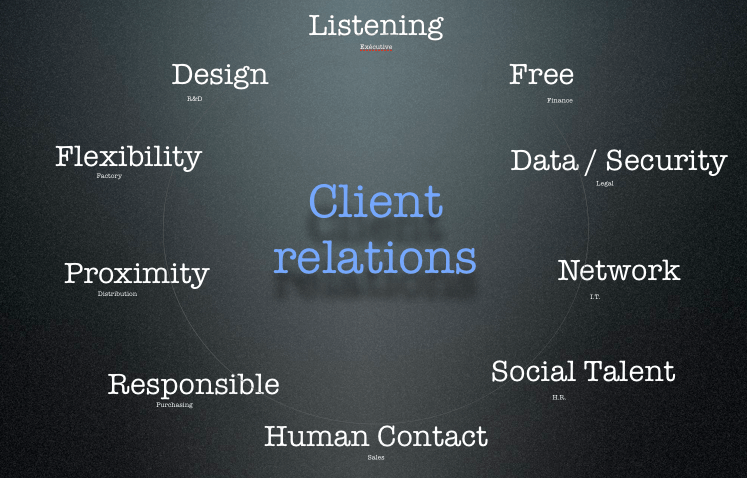Great Branding: Great Listening
The social web has been said to turn the world upside down, putting the power into the hands of the consumer. Others harken back to a time when the street shopkeeper knew all of his/her customers by name. You will find some people foretelling the end of the email, while others are ushering in the era of the mobile. Go local. Invest in eCommerce and/or fCommerce and don’t forget mCommerce. It’s a cocktail of forecasts that leave more than a few punch drunk!
Rather than focus on what will or will not be coming in 2012, my conviction is that, whatever the world ahead of us, the key skill that will be necessary to develop great branding, is the ability of the organization to listen.
Listening in a noisy world
Great listening skills are rare, especially when time is so “limited.” Faced with the bombardment of external stimuli, our ability to exercise concerted listening — to one’s own children, much less in the office to one’s staff or to clients — is deeply handicapped. We are distracted. We are pulled at by thousands of incoming messages. We are torn by overwhelming choices. Resources are strained. We are stressed by the need to perform. We need to think, to decide, to act and react. In such circumstances, listening can seem like a luxury.
A cocktail of empathy and humility
Yet, some brands and executives do it better than others. What is the reason for this? I put it down to character. Yes, I certainly believe that listening can be improved by training: how to observe non-verbal signals and interpret contextual environments can be learned, at the very least, via experience. That said, some people are just more disposed to listen. They come with a certain myndset. I believe that that myndset is based on a core cocktail of humility — that the world doesn’t revolve around me — and empathy — an ability to get into the shoes of the other person(s).
Starting with marketing
It is this same state of mind that marketers and, especially those in digital marketing, need to adopt. Rather than considering themselves, as they are wont, to be the center of the universe (often depicted as the center of a hub and spoke system, as below, in a typical organization), they need to reconsider the client as the center of their business. This is one reason why I have long felt that customer service needs be elevated in status within the organization, since they spend their time in constant contact with the client. Moreover, their central purpose is to listen to the client’s needs. Yet, how often is the customer service invited to report into the Executive Committee?
The Chief Executive as a Chief Listening Officer
A brand absolutely needs vision, direction and (sometimes painful) decision making. A CEO must be able to provide this. However, I think that articulating that vision, making those decisions and giving those directions can be so much more effective if they are preceded with sufficient doses of empathy and humility. Humility to realize that no one can anticipate the future, to recognize that they need to be surrounded by complementary and different talent (i.e. diversity) and, finally, to accept one’s own imperfections. Empathy to understand the client’s perspective, to communicate and motivate staff and the other key stakeholders. Empathy and humility are sexless*. However, they are entirely sexy, from the perspective of the emancipated employee and the cash-strapped customer.
Marketing no longer the center of the universe?
Marketing is absolutely the cornerstone to building value into a brand. The mindset of the marketer must adapt, that said, to be more agile and closer to the market. In fact, each function in the organization must reconsider its role, its methods and people in an effort to get closer to the client. In this vein, to the extent that the title and the word structure one’s thoughts, I thought of relabeling the ideal organigram. Here is my suggestion, whereby I might replace the title of each department:
- Executive to the Office of Listening
- Finance for Free
- Legal for Data & Security
- I.T. for Network
- Sales for Human Contact
- Purchasing for Responsible
- Distribution (warehouse) for Proximity
- Factory for Flexibility
- R&D for Design
- HR for Social Talent
- and Marketing for Client Relations
If empathy were the single most valuable and rare asset in companies, Human Resources would presumably find their role and guidelines substantially modified. The “new” term I might attribute to HR is Social Talent; but, that might sound a bit demagogical for a social media aficionado. Social for their ability to listen, to empathize, to collaborate, to bond. Talent in their expertise, their determination to succeed. On balance, though, as I have written before (Social Attitude), I’d rather find someone first with the right myndset, and then work on their technical expertise, rather than hire uniquely based on the expertise and hope that they learn to fit in.
The bottom line: It is my belief that, from the CEO down through the ranks, organizations must cultivate listening skills, with heightened quotients of empathy and humility. What are your thoughts? I welcome your comments.
————–
*Understanding that this is a generalization, I would still argue that empathy is a talent more typically found in women… and why I believe that feminine management skills should be viewed much more positively than they are in most “masculine” environments.















May I suggest a further resource to learn more about empathy and compassion.
The Center for Building a Culture of Empathy
The Culture of Empathy website is the largest internet portal for resources and information about the values of empathy and compassion. It contains articles, conferences, definitions, experts, history, interviews, videos, science and much more about empathy and compassion.
http://CultureOfEmpathy.com
I posted a link to your article in our
Empathy and Compassion Magazine
The latest news about empathy and compassion from around the world
http://bit.ly/dSXjfF
also, I'd like to invite you to lead an empathy panel in our:
International Online Conference on:
How Can We Build a Culture of Empathy and Compassion?
http://bit.ly/nU0NXB
I think it is interesting that you bring up the perspective of empathy & listening. One of the hard things to do is to listen without reacting. When I think of some of the big social media disasters some could have been avoided with empathy for the frustration of customers. Listening, mirroring, and reflecting their emotions as displayed through tweets & other status updates.
The transparency of Social Media allows brands to adopt the voice of their customers and that should be considered in campaigns.